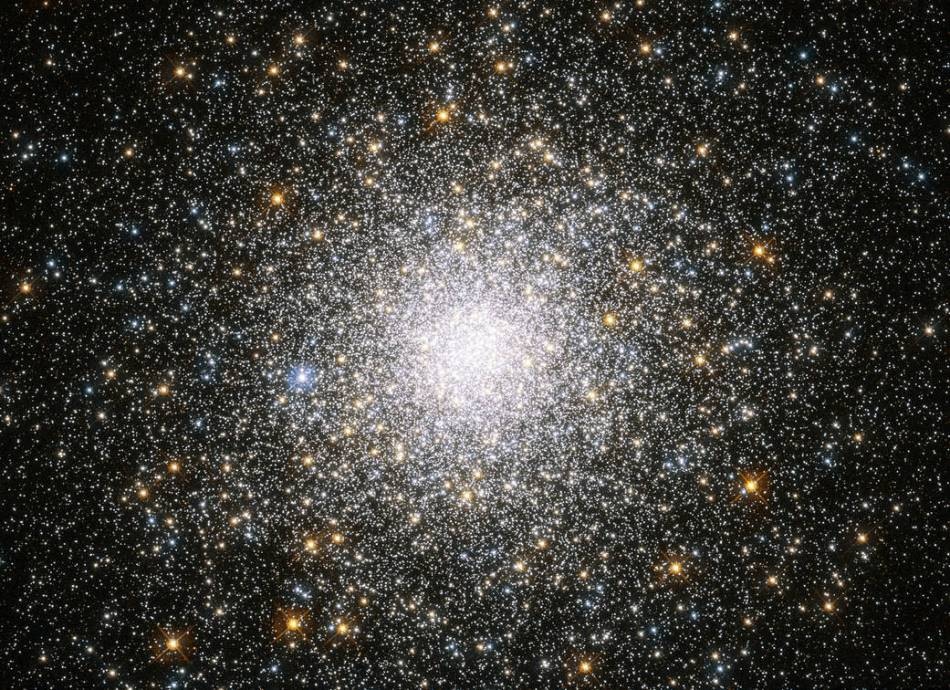Apr 29 2019
Messier 75 is a sparkling burst of stars. In this globular cluster, gravity bounds a spherical collection of stars together.
 Hubble image of Messier 75, taken with the telescope’s Advanced Camera for Surveys. (Image credit: ESA/Hubble & NASA, F. Ferraro et al.)
Hubble image of Messier 75, taken with the telescope’s Advanced Camera for Surveys. (Image credit: ESA/Hubble & NASA, F. Ferraro et al.)
Such clusters revolve around galaxies and usually reside in their less-crowded, outer areas, assembling to create thick communities in the galactic suburbs.
Within the Milky Way, Messier 75 is located in the constellation of Sagittarius, or the Archer, about 67,000 light-years away from the planet, Earth. Most of the cluster’s stars, totaling around 400,000, can be found in its center. Moreover, the cluster is one among the most thickly populated ones to be ever discovered, having a remarkable luminosity of about 180,000 times that of the Sun. It is not surprising that it is photographed relatively well.
Messier 75, initially discovered by Pierre Méchain in 1780, was also detected by Charles Messier, who added this to his catalog later that year. Advanced Camera for Surveys of the NASA/ESA Hubble Space Telescope successfully captured the Messier 75 image.
Hubble’s Messier catalog features the Messier 75. It also contains some of the most intriguing objects that can be viewed from the Northern Hemisphere of Earth.